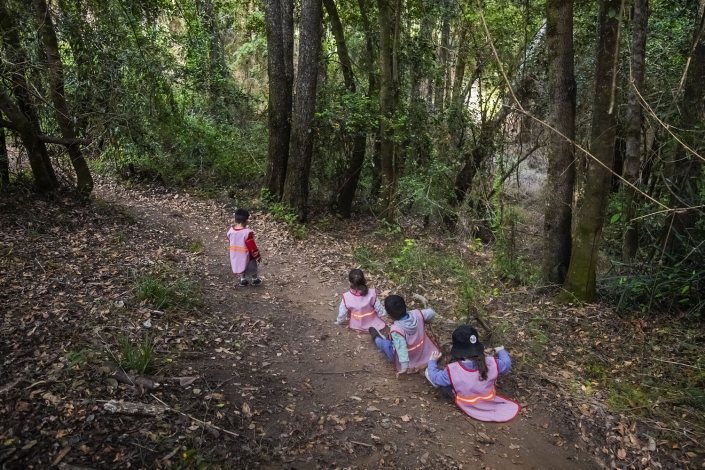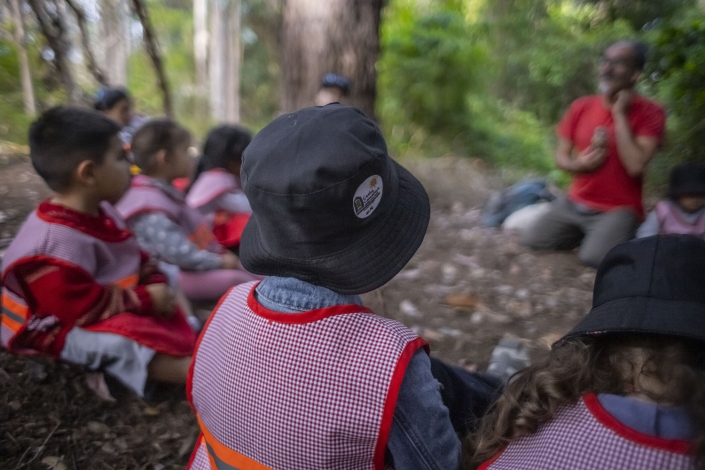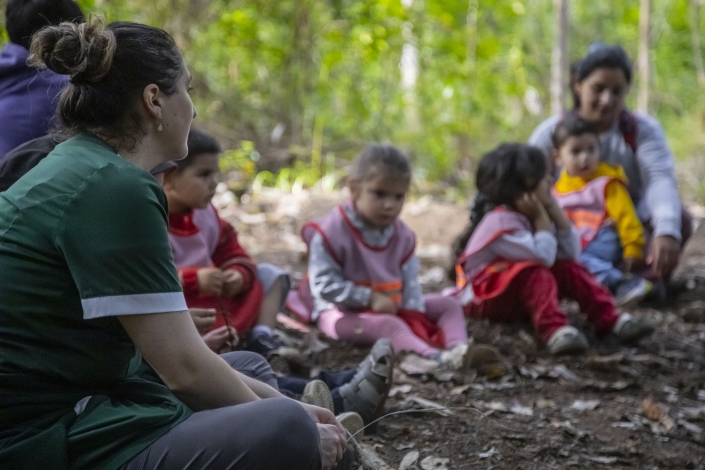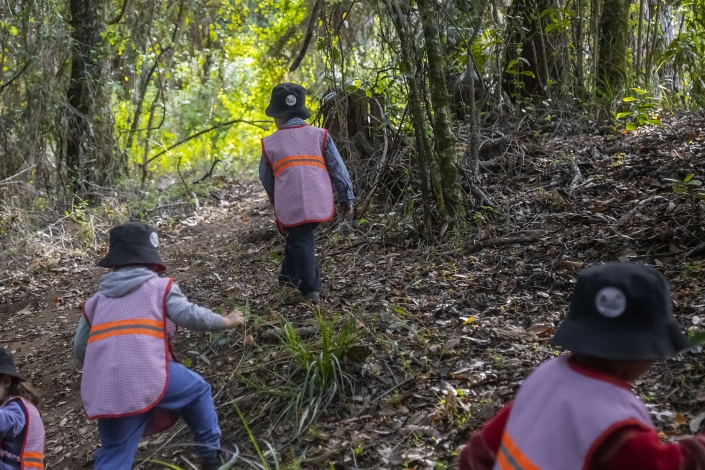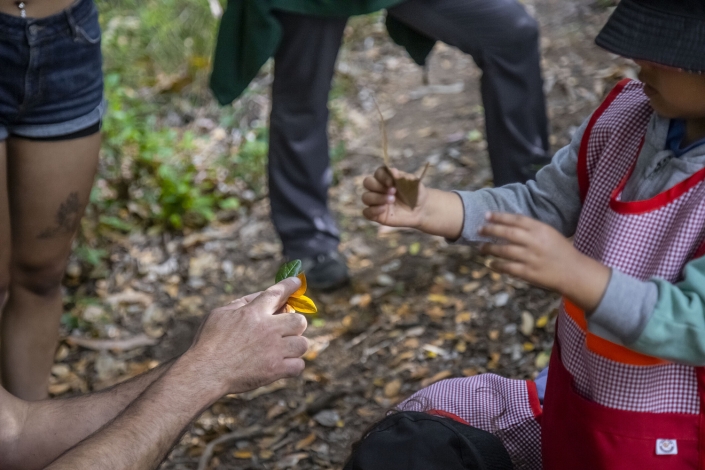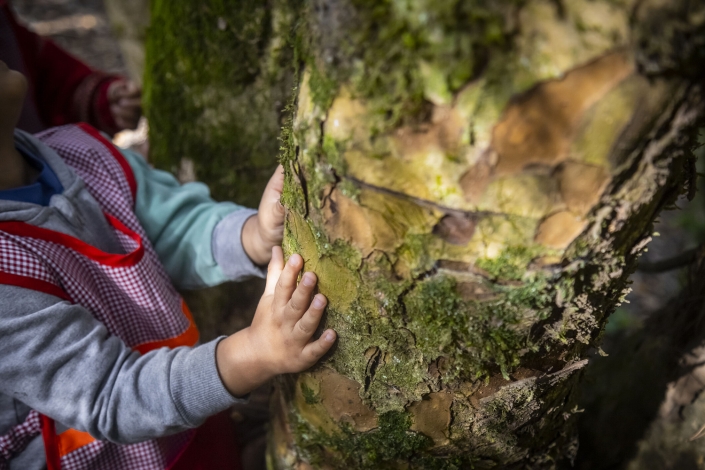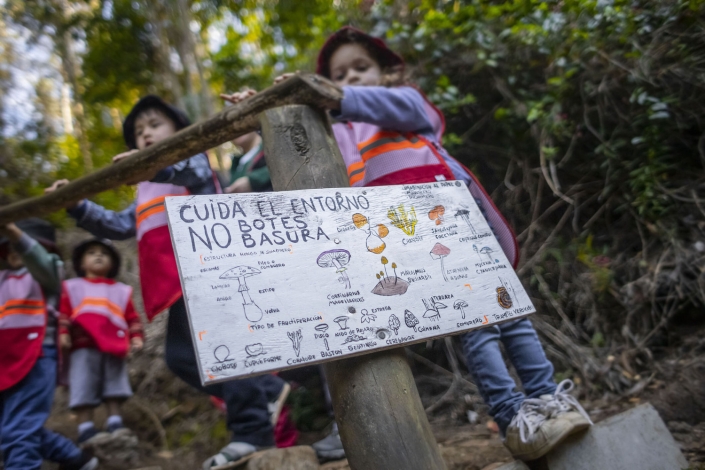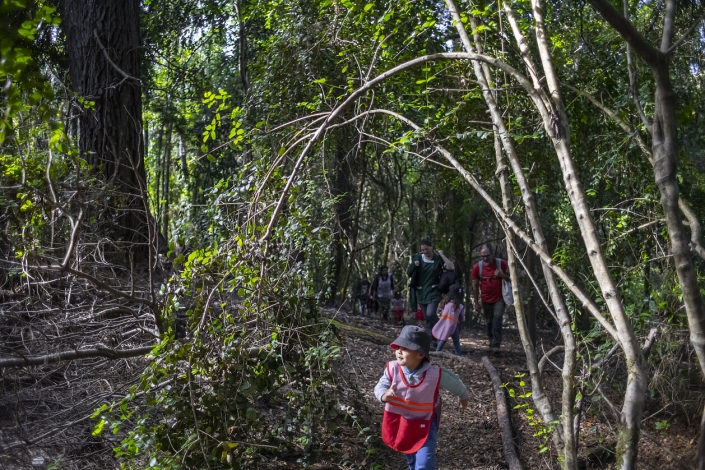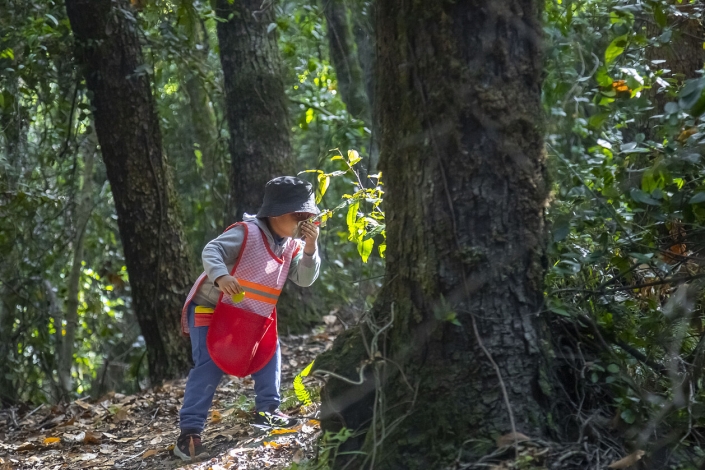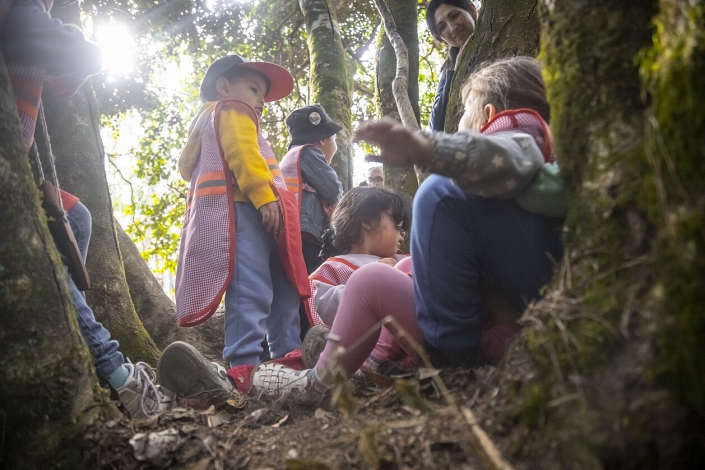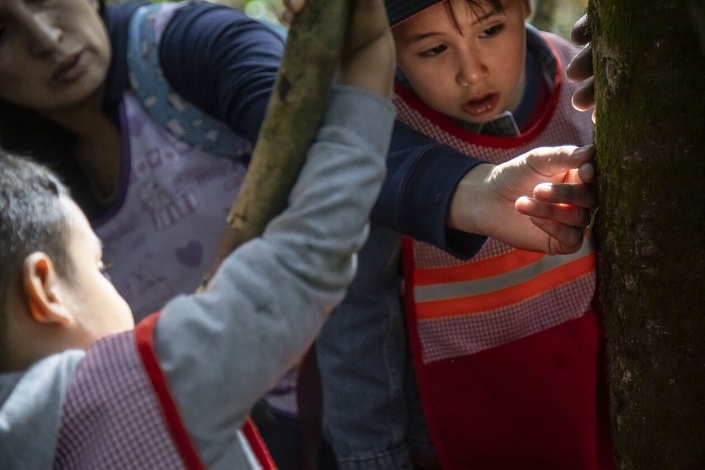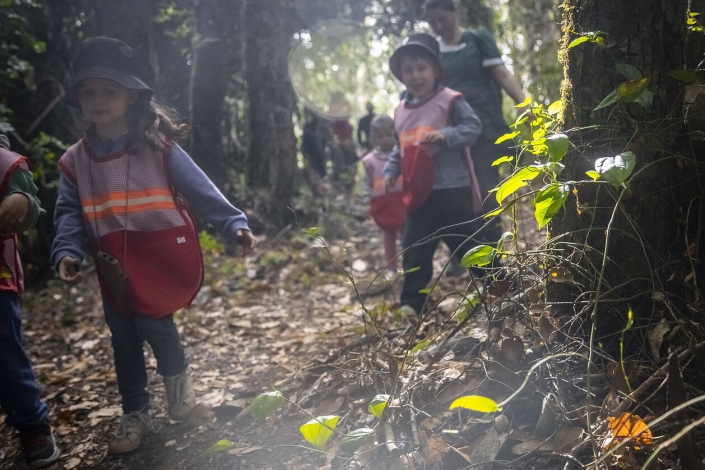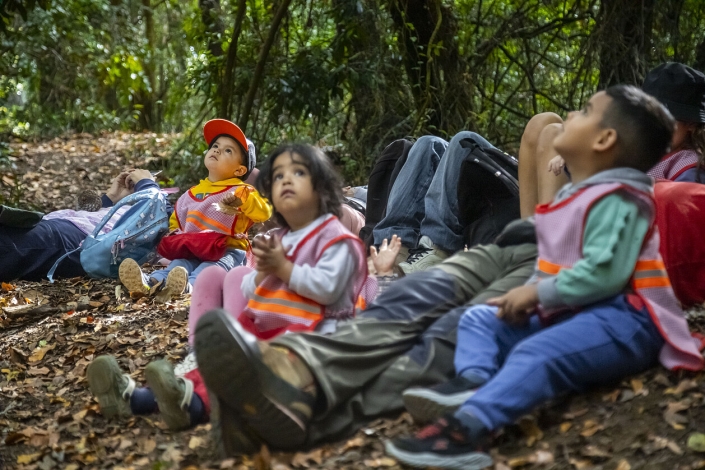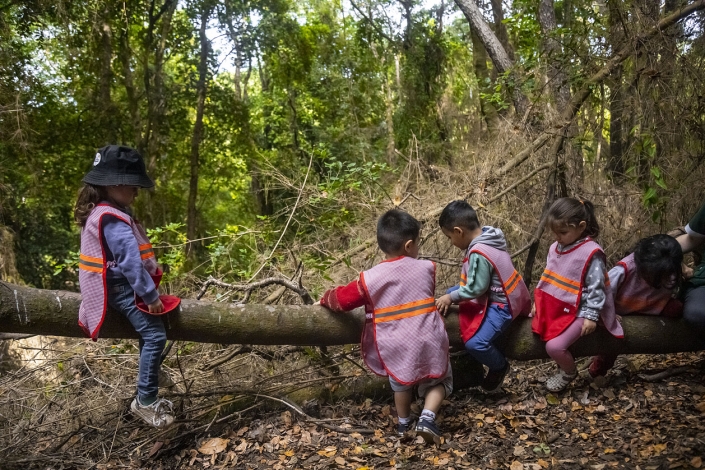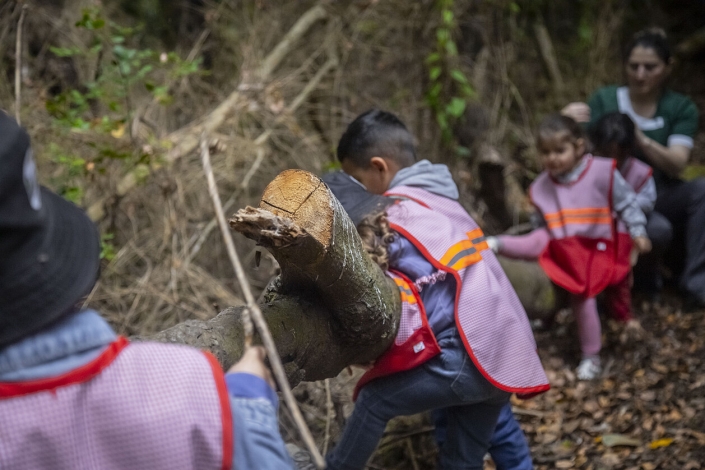Children Participate in Educational Pilot Program that Fosters Connections with Nature
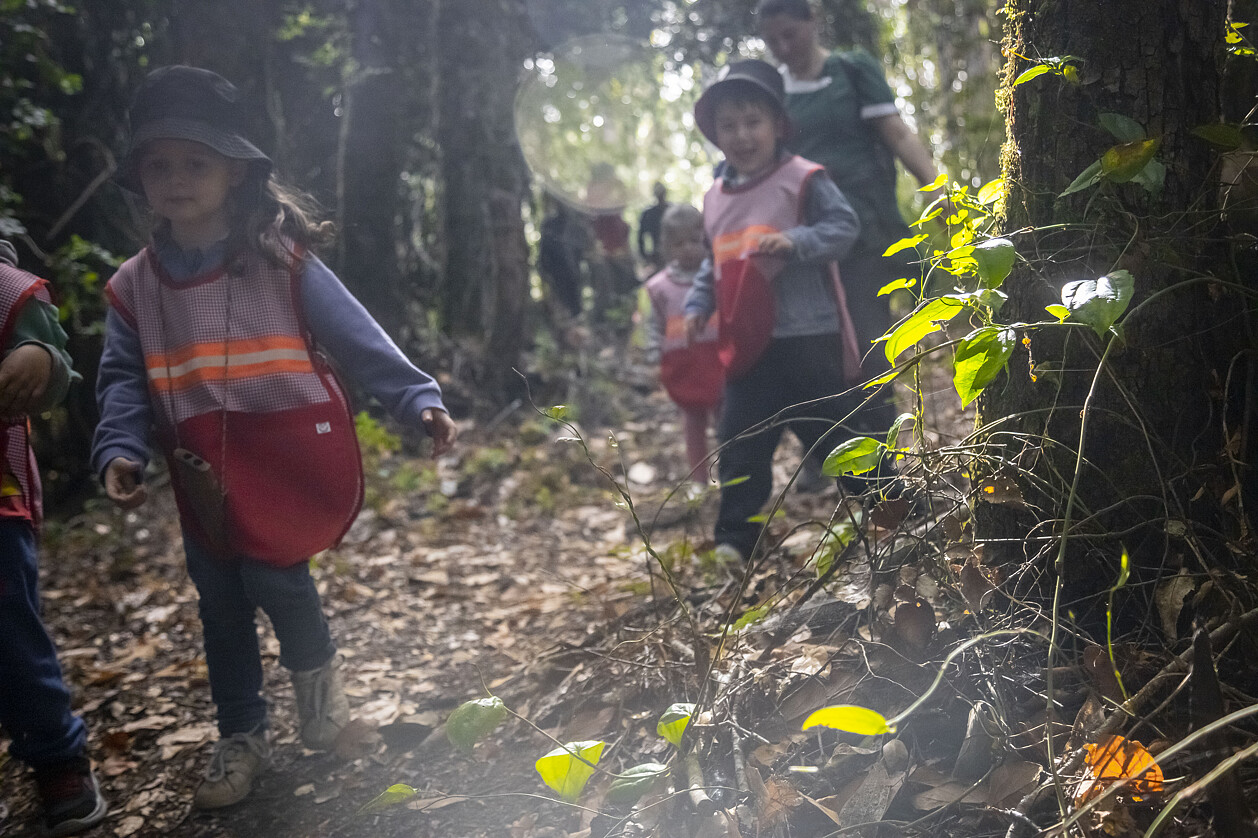
The collaboration between the Campus Naturaleza project of the University of Concepción and the NGO Pewma, Education with Nature, made it possible to launch the Pilot of Education with Nature for Early Childhood in 2023. The success of the initiative allows us to envision permanent programs and generate evidence of the educational benefits of permanent contact between children and the natural environment.
Running, playing with the leaves or simply missing a moment of the sight of the aunts in the garden. Almost the only moment of silence occurs when they are invited to look up, towards the tops of the trees. They are children, and they are amazed when they can hear the sounds of birds, smell the earth and feel the forest, in an environment so close to the city that it is almost unbelievable.
The children are part of the Education with Nature Pilot for Early Childhood. This instance is developed thanks to the collaboration between the Campus Naturaleza project of the University of Concepción and the NGO Pewma Educación Con la Naturaleza.
The pilot project, which has been running since mid-2023 with the CEDIN, Pequeño Pudú, and Los Sobrinitos kindergartens, began its second cycle in 2024. These establishments are located close to the UdeC Heritage Campus and the land where the Campus Naturaleza project will be implemented, which will conserve 25 hectares of relict deciduous forest ecosystems in Concepción, aquatic ecosystems, and will also develop actions for ecological restoration, human well-being, biocultural environmental education, and mental health, among others.
Dr. Cristóbal Pizarro P., an associate researcher at the Campus Naturaleza project at the University of Concepción, points out that “science has shown that stimulating this type of emotional bond with nature at an early age is key, as it generates autonomy in the development of physical, intellectual, social and emotional skills, related to and adapted to the environment. These skills are not exclusively cognitive (knowing nature), but also stimulate social, psychoactive and motor skills, since one can exercise, learn, sing and ultimately enjoy nature with other people in a recreational and educational environment.”
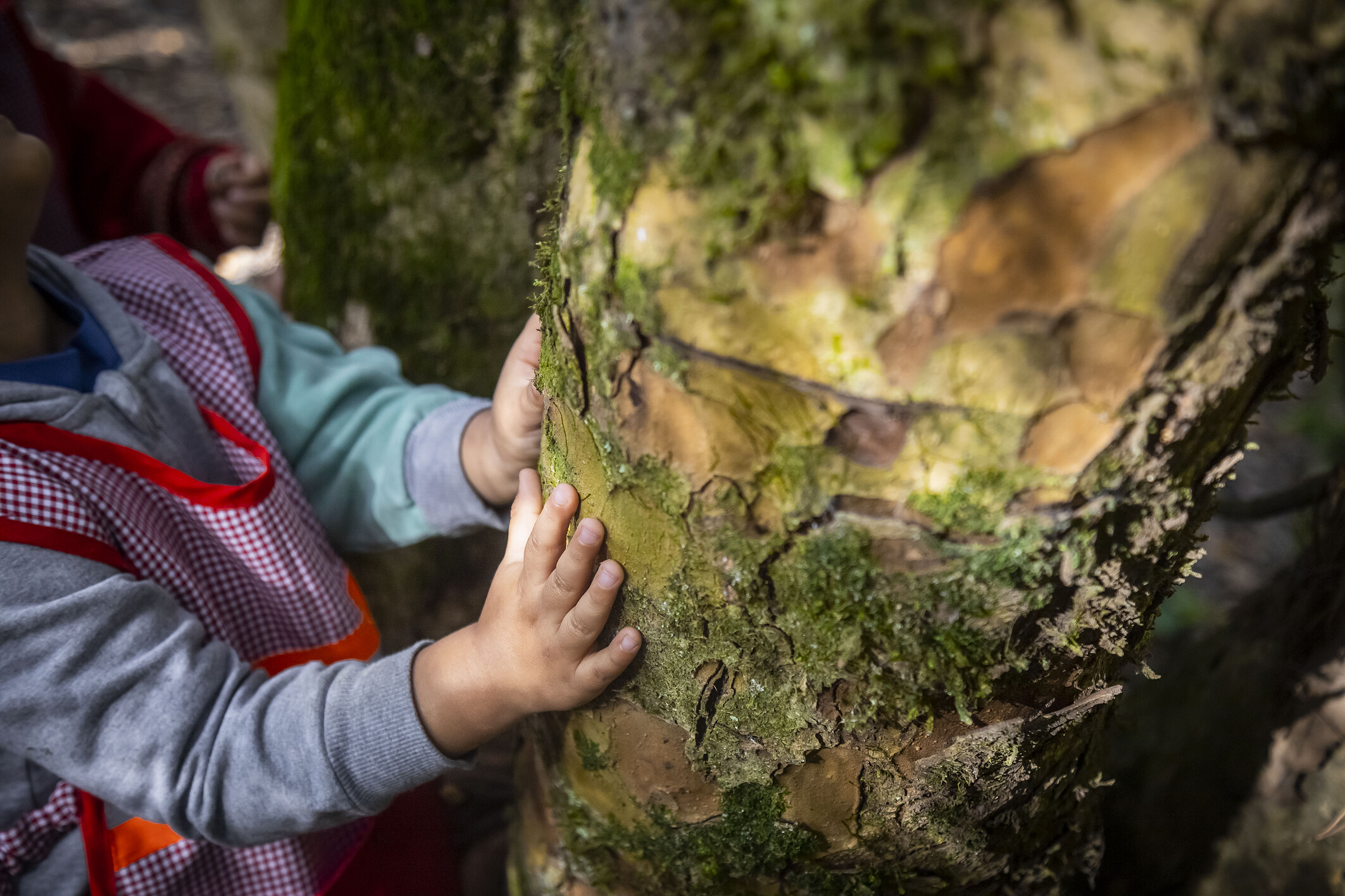
She says that these skills are (and will be) key to adapting to climate change and strengthening environmentally responsible, participatory and committed citizenship. “To achieve this, the role of education professionals is of utmost importance, both in the practice and in training in this type of pedagogical approach. To this end, in addition to the NGO Pewma and the schools, we are collaborating with several teachers and interns from the UdeC School of Education.”
Educational approach
The NGO Pewma has been developing this pedagogical approach for decades throughout the Biobío and Ñuble region. In this regard, Juan González E., the organization's pedagogical coordinator, comments that "this pedagogical approach, in the first instance, strengthens a constant rapprochement and link with the territory-place in which these school communities are inserted. We wish to promote in girls, boys, educators and accompanying families, a space to enable permanent access to develop learning outside the classroom, where human dimensions such as well-being, connection with nature, social learning, playing with the senses, risk management and seeing nature as a space for movement can be enhanced."
“In this way, we frequently go out for walks in these different places, every two to three weeks: the streets near the educational center (kindergarten), the surrounding hills, and finally we go into the native forest of Campus Naturaleza; that is, we generate a process of constant approach to explore and re-recognize the place, its characteristics and its diverse daily routines. In this approach, a discovery is fostered through wonder, play, singing, rhymes and laughter, while sharing, walking and living together,” explains the educator and philosophy professor.
Graciela Silva M., Director of the Community Center, Nursery and Kindergarten Los Sobrinitos, comments that “each conversation, discovery and wonder at what nature offers is transformed into a great learning experience that responds to the essence of each child. We see this as a great opportunity for toddlers, mainly because of the active and didactic learning they experience in different experiences in natural environments, where a range of interactions opens up for dialogue, questions, explanations, curiosity and new ways of learning, which lays solid foundations for continuing the path of knowing, doing and feeling.”
“There they can acquire multiple skills for the comprehensive development of their lives, so necessary these days, since children are being exposed to different scenarios that are not favorable to them at such an early age, such as lack of family and social time, overexposure to technological devices, among others,” says the educator.
Similarly, Ana Castillo, a teacher at the Mi Pequeño Pudú kindergarten, says that the project is important because it allows teachers to instill “care for nature, respect, and coexistence in an environment that attracts children’s attention. “They always ask us when we are going out again, when is the day. We first showed them pictures and then reinforced that with field trips, where we reviewed the animals that live in the forest, such as the culpeo fox, the pudú, the guiña, the monito del monte, among others. Everything is done with songs and other fun activities for the little ones.”
“Our children are three to four years old, so they already understand a lot, so it was a beautiful experience for them. We also invited the family, they were very involved in this activity, we went out with them, so the children liked to participate more,” she explains in relation to an educational approach that strengthens physical health and the idea of socializing with their peers in a natural environment, she says.
Dr. Pizarro adds that “our plan is to consolidate the work in this pilot with these three establishments, with permanent educational trips to nature. We would like to establish permanent nature education programs in these and other establishments that can support educators in integrating cross-curricular elements that address the development of different skills. To this end, we are already making progress in the design and evaluation of the trips, and to be able to generate evidence on the educational benefits of nature in the long term. In this process, we would like to inspire other establishments and organizations to work in a network, and also influence the people who make the decisions, to systematically integrate nature education in public and private education, as has been done in many other countries, with excellent results,” states the UdeC academic.

